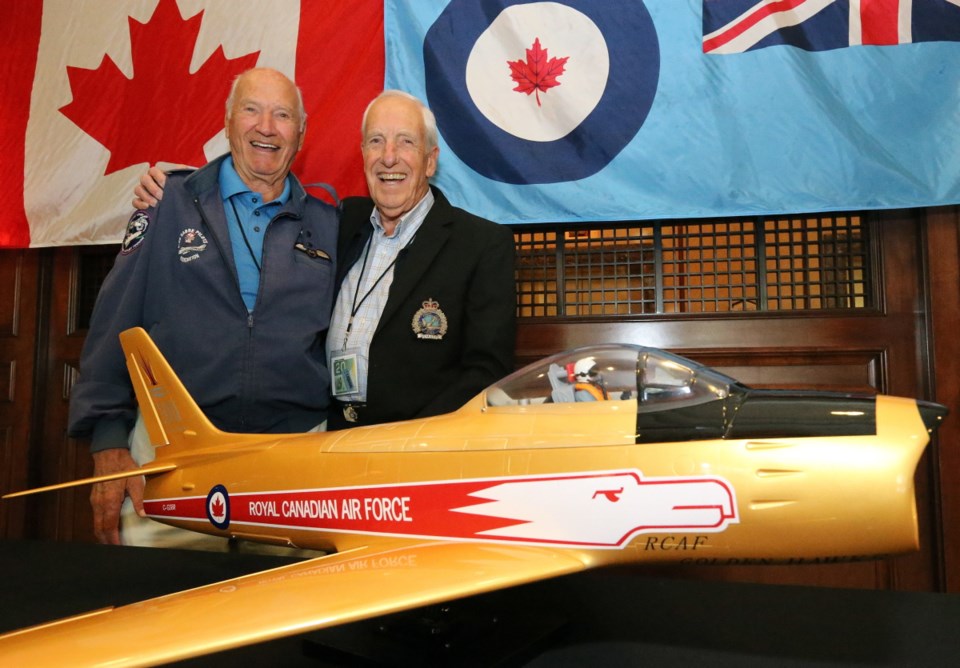Sixty years ago, daring young NATO pilots were protecting the skies over Cold War Europe from the Soviet menace.
“We were a formidable force,” said Syd Burrows, 84, of Comox. “The Russians were threatening all the time — like they are today.”
Burrows helped bring more than 400 former Royal Canadian Air Force jet fighter pilots and their family members to Victoria for a reunion this weekend.
The Canadian pilots were the protective forces for the West German populace, he recalled.
“We weren’t there as occupiers. The French, English and Americans were occupation forces. We were there to protect them from the Russians,” said Burrows, who was stationed in Zweibrucken, West Germany, from 1953 to 1955. “We were only a couple of minutes from the Iron Curtain.”
Canada boasted 300 Sabres in 12 squadrons — four wings each with three squadrons of 25 aircraft. There is still one Sabre in flying condition, based in Gatineau, Que.
One hundred of the band of brothers died in accidents, although none in combat.
Burrows lost an eye on Sept. 13, 1954, when his aircraft struck a hawk during training exercises, causing the plane’s Plexiglas canopy to explode into his face. He was awarded the Air Force Cross for managing to land safely under extreme conditions. He was grounded for 12 years but managed to regain flying status as a co-pilot.
“They call me Cyclops now,” he joked.
The average age of the Sabre pilots is 83, and there are 21 older than 90.
“These reunions are probably the high spot of our retired lives,” said John England, 82, of Qualicum Beach, chairman of the organizing committee. “We were the most formidable aircraft to fight the Russian MIG 15s.”
His son, Christopher, born on a military base in Germany, and wife, Arlene, also attended the reunion. “Flying was in my blood,” said Christopher England, now commanding officer of the Snowbirds aerobatic demonstration team.
Arlene England and a girlhood friend both married RCAF pilots training near their tiny hometown of Nelson, N.B., and ended up in Europe.
“In the Cold War, the wife had to be organized,” she said. “If there was an emergency and all the men had to fly, we had to look after ourselves. You became very strong. They told us we should always have $100 in travellers cheques and we laughed at that — nobody had $100.”
If a pilot died, his widow had to be ready to pack the babies and belongings and drive herself to Le Havre on the Normandy coast to be on the next ship back to Canada, vacating the house for the next NATO pilot and his family.
“We had a good time but we knew there was a dangerous side,” Arlene England said. The wives overlooked a lot of the hardship because they knew their husbands were “completely happy,” she said.



